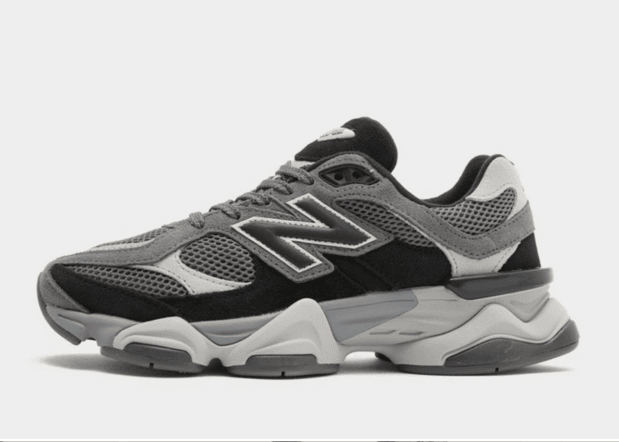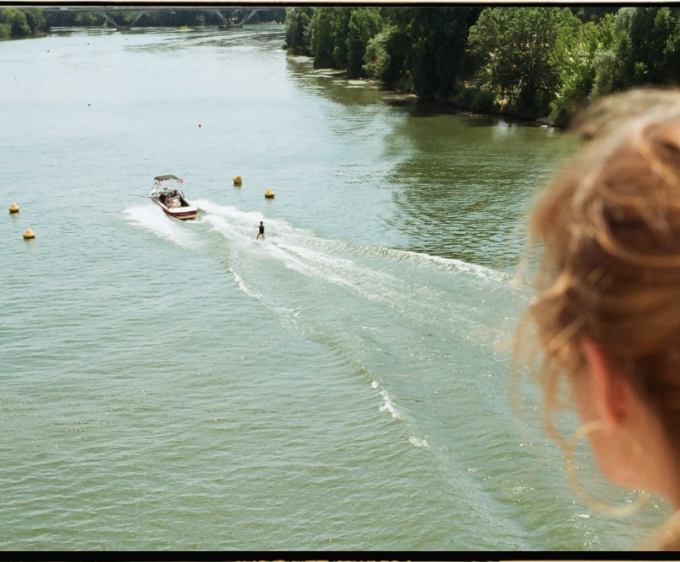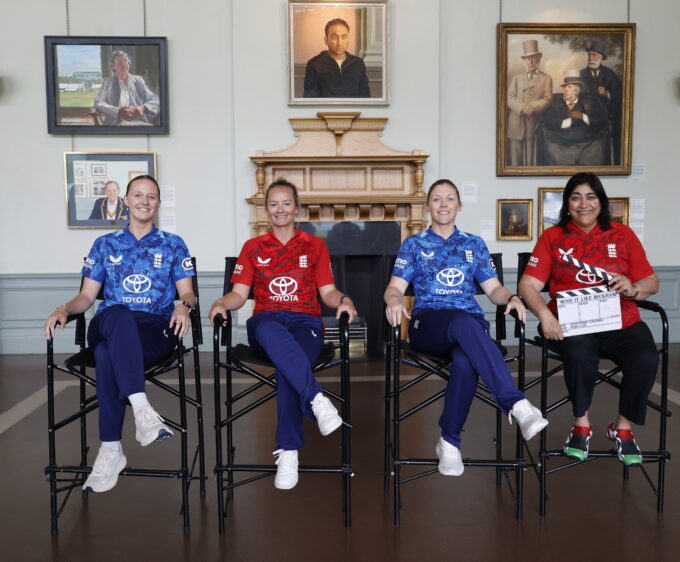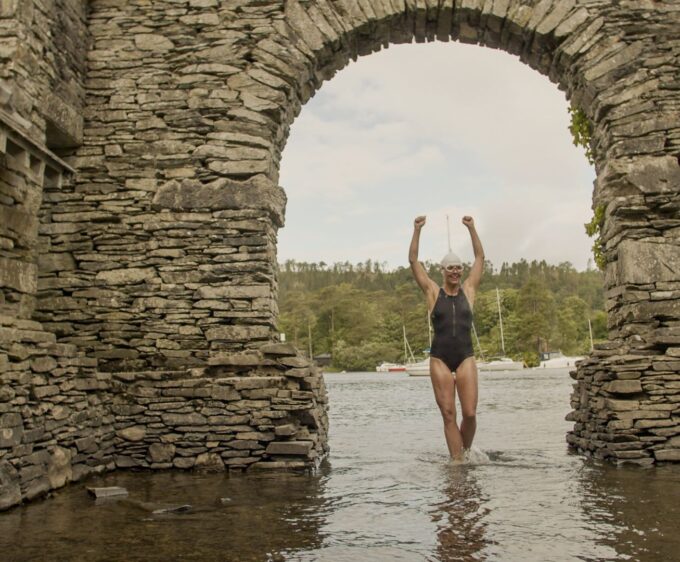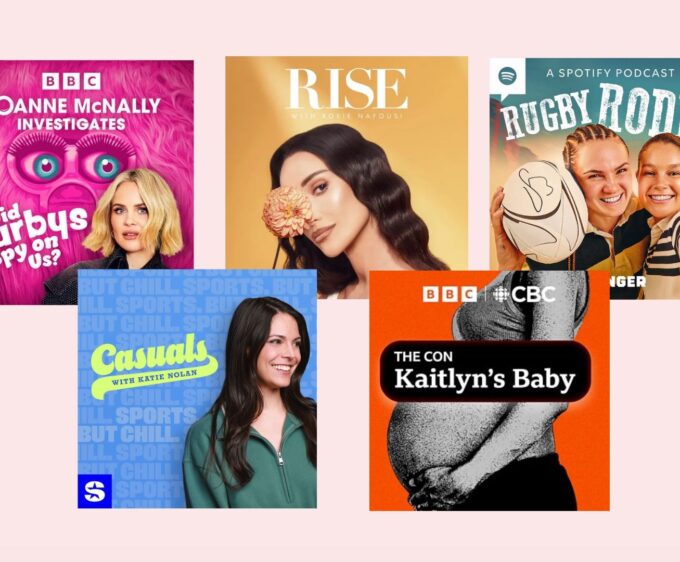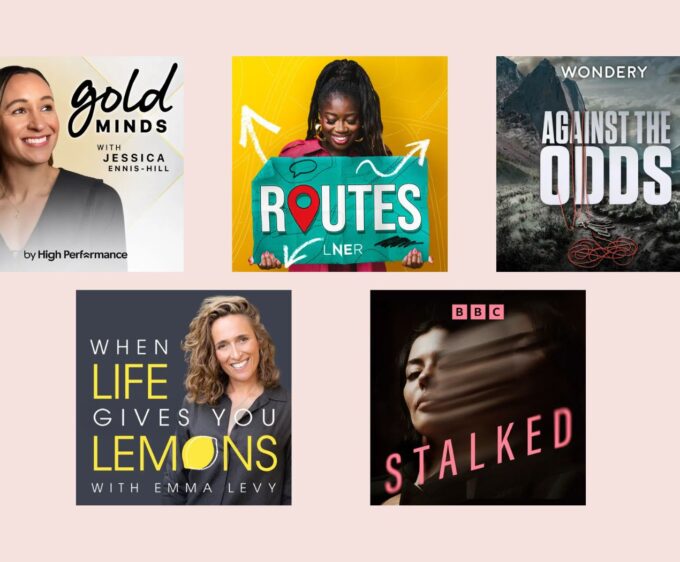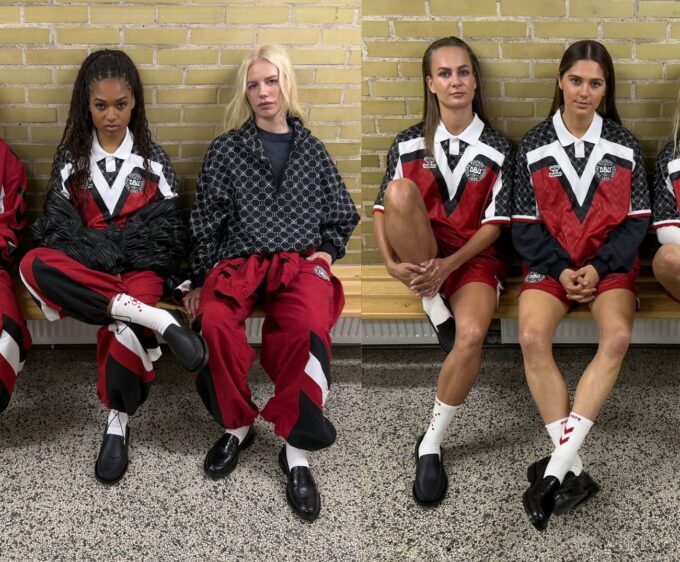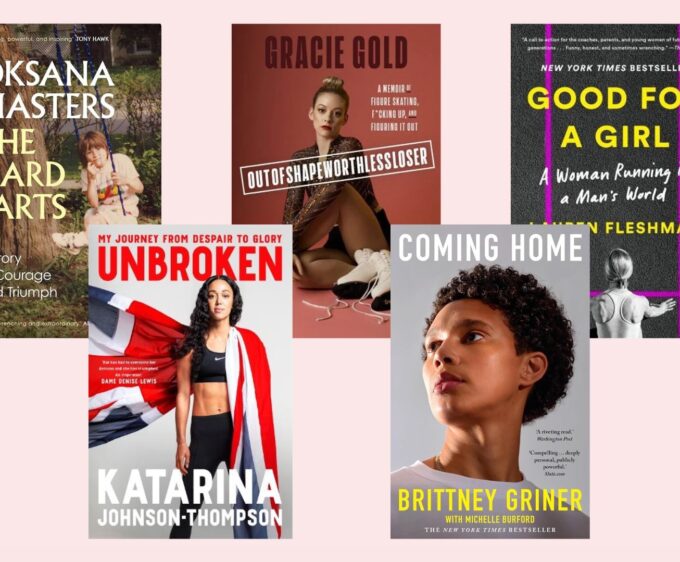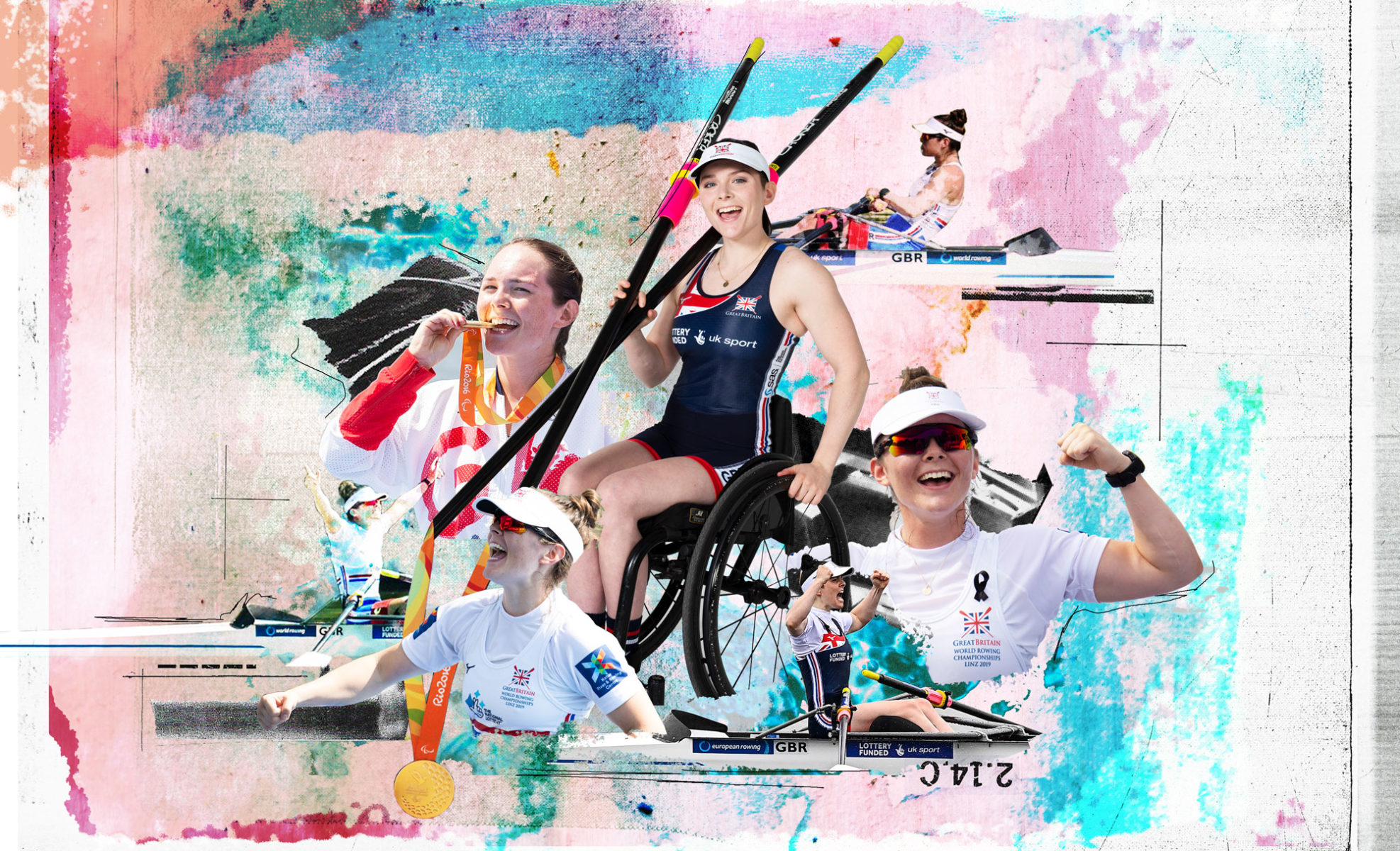
Hope On The Horizon
“I’m really interested in how we can push ourselves athletically as humans.’’ Paralympian rower Lauren Rowles simply credits hard graft for her sublime success
By Patricia Carswell
Illustration by Esme Harvey-Otway
Athlete Lauren Rowles has crammed more into the last 23 years than most people achieve in a lifetime. She’s won gold medals for rowing in the Paralympics as well as the World and European Championships. She’s been awarded an MBE, is heralded as a powerful motivational speaker and works as an ambassador for people with disabilities and the LGBTQ+ community. And she’s recently joined the Unlocked programme, empowering female athletes and increasing the reach of women’s sport. Yet Lauren takes none of it for granted. She rejects the idea that she is extra-talented, crediting all of her successes to hard work.
“My work ethic is something I’ve always prided myself on. I will outwork anybody. I think that’s part of the reason why I’m in the position that I am today.” Lauren needed every ounce of that grit and determination when she became suddenly disabled at the age of 13. Waking up one morning to discover, out of the blue, that she’d been paralysed by transverse myelitis (a rare inflammatory disease), she had to come to terms with the shattering of her sporting dreams.
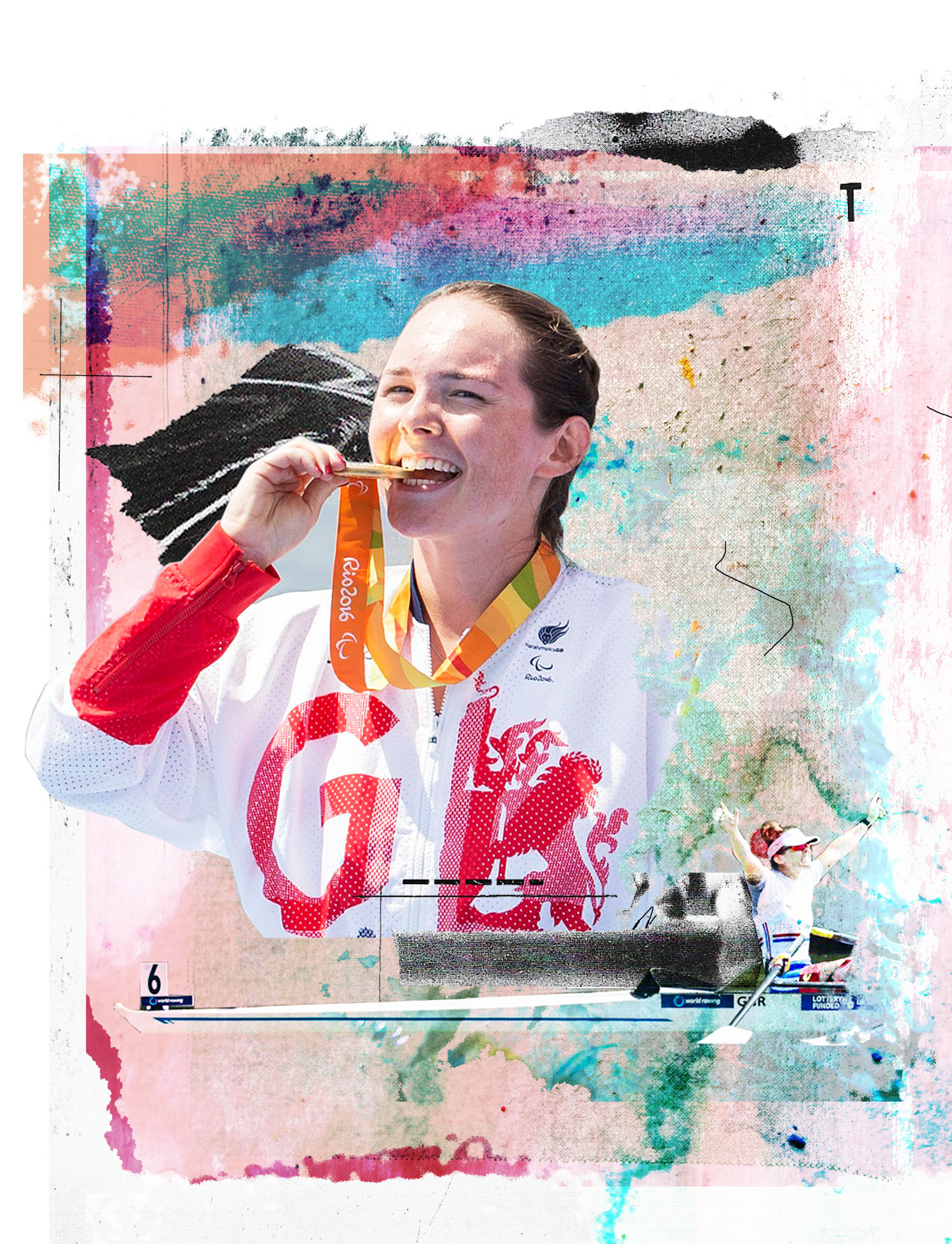
“Sport was everything growing up,” she said. “When I was seven years old, I wrote a declaration in my High School Musical diary that I wanted to be a runner at the Olympic Games. Sport was the one thing that I was good at as a kid. I loved the way it made me feel.” It took her a while to come to terms with her disability. “For a long time, I just thought it would pass and I’d somehow just move on from this.” It wasn’t until she was home after many months in hospital that reality started to bite. “My life was different. I went back to school and my friends treated me differently. That’s when it really started to dawn on me that I couldn’t run again, that I wasn’t going to the Olympics and that my dream was over. It was so overwhelming that I kind of lost my way.” Ironically, it was sport that helped her through this dark time. Her mother took her to the 2012 Paralympics in London and suddenly she saw what people with disabilities could do: “I was stunned.”
They immediately started researching adaptive sports and Lauren began wheelchair racing, soon progressing to the top and representing England in the Commonwealth Games in 2014. A year later, when suffering from an injury, she was invited to try rowing. She immediately experienced a sense of freedom she hadn’t known since she’d been able to run. Learning to row wasn’t without its difficulties, though.
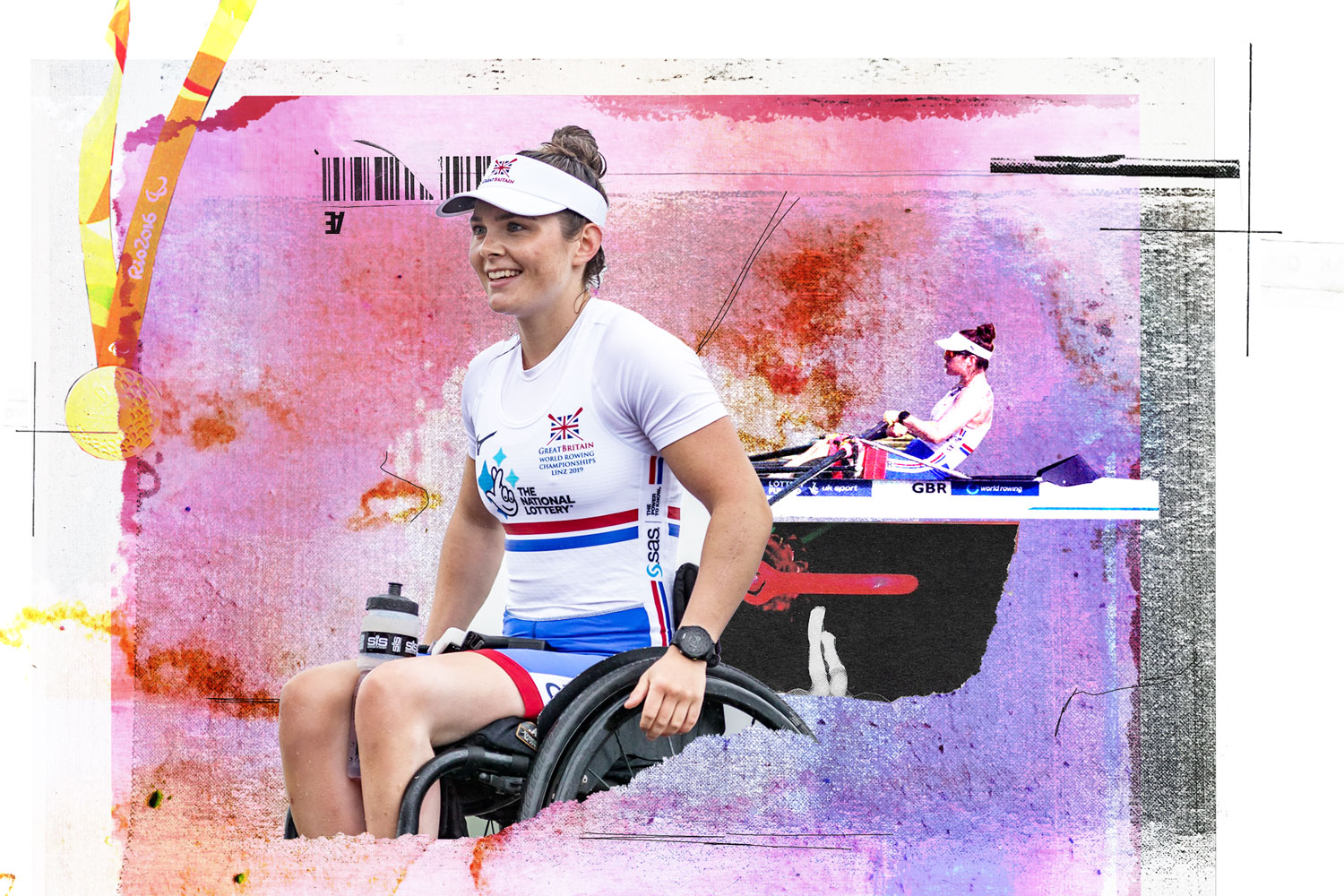
“Rowing is a technical challenge, and learning that was a process,” she said. Put into a mixed double scull with Laurence Whiteley, a more experienced rower, the biggest lesson initially was staying in time. “When I was in my racing chair, I only had to rely on myself and go at my pace. And now I had another person to think about.” Astonishingly, just five months after taking her first strokes, they went to the World Championships. Once again, Lauren attributes this extraordinary feat to sheer hard work. “I’m a perfectionist, so I wanted desperately to be good at it. And so I just worked on it. I sat thinking about how to perfect the stroke, how to make the boat move quickly. I watched videos. You have to look for what’s missing – what are people not doing? Or what are people doing that could be better?”
This dedication paid off when Lauren and Laurence won a gold medal at the 2016 Paralympics. It was, she said, the best time of her life. “I loved it. All I’d wanted to do since I was a kid was be a full-time athlete, so I literally lived the dream.” Lauren dedicated her gold medal to her mum. “I owe everything to her. She taught me about resilience. She was there by my bedside, every single night, when I was in the hospital and she gave up her livelihood to allow me to achieve my childhood dream. She made sure I was studying, she kept me fed and watered, she reminded me what it was all for, she made me disciplined. She was my rock.”
Lauren’s Paralympic success was crowned with an MBE. With typical modesty, she saw the award as a way to thank her family – she brought her mum and her grandparents to the Palace. “It was a really special day, being able to give back to the people that had invested in me.” When she’s not training, Lauren is heavily into gaming and even built her own computer, but although she’s a self-confessed geek, her interests go wider. She plays the guitar, which she started learning as a child. “I can still play,” she said. “I want to do more – it’s a nice way to unwind.”
Music plays an important part in her training, too. She is known as the DJ in her squad, creating playlists with everything from heavy metal to Beyoncé. Lauren loves fashion, too. “If I had more money I would spend it all on clothes! I’d love to go to London Fashion Week.” She has a passion for vintage and loves finding pieces nobody else has. And, strangely enough, it was her CrossFit hobby that brought Lauren and her girlfriend together, wheelchair basketball Paralympian, Jude Hamer. “I wanted to know more about how these athletes trained for so many events – the way that they could go from doing gymnastic-style movements to a marathon to power cleans. I’m really interested in how we can push ourselves athletically as humans.” There’s now an adaptive division of the CrossFit Open. “It’s really exciting to see where it’s going,” said Lauren. “I’d love to get involved.” Looking ahead, Lauren is excited about Tokyo. Her rowing has improved, she said, and she has learned to manage the nerves that affected her in Rio. “I’m a completely different person. I still get nervous, but I can channel that nervous energy in the right way.”
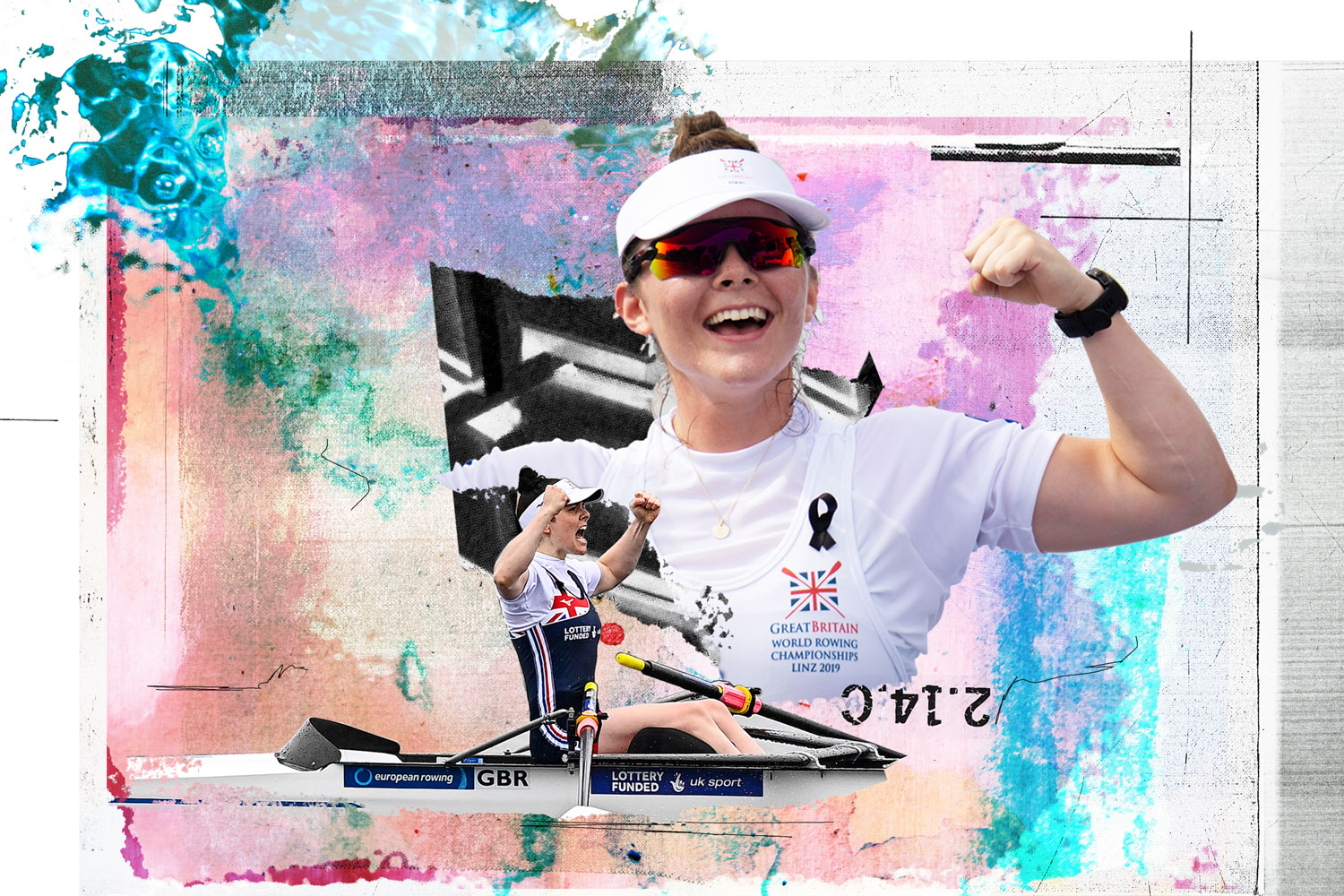
dedication
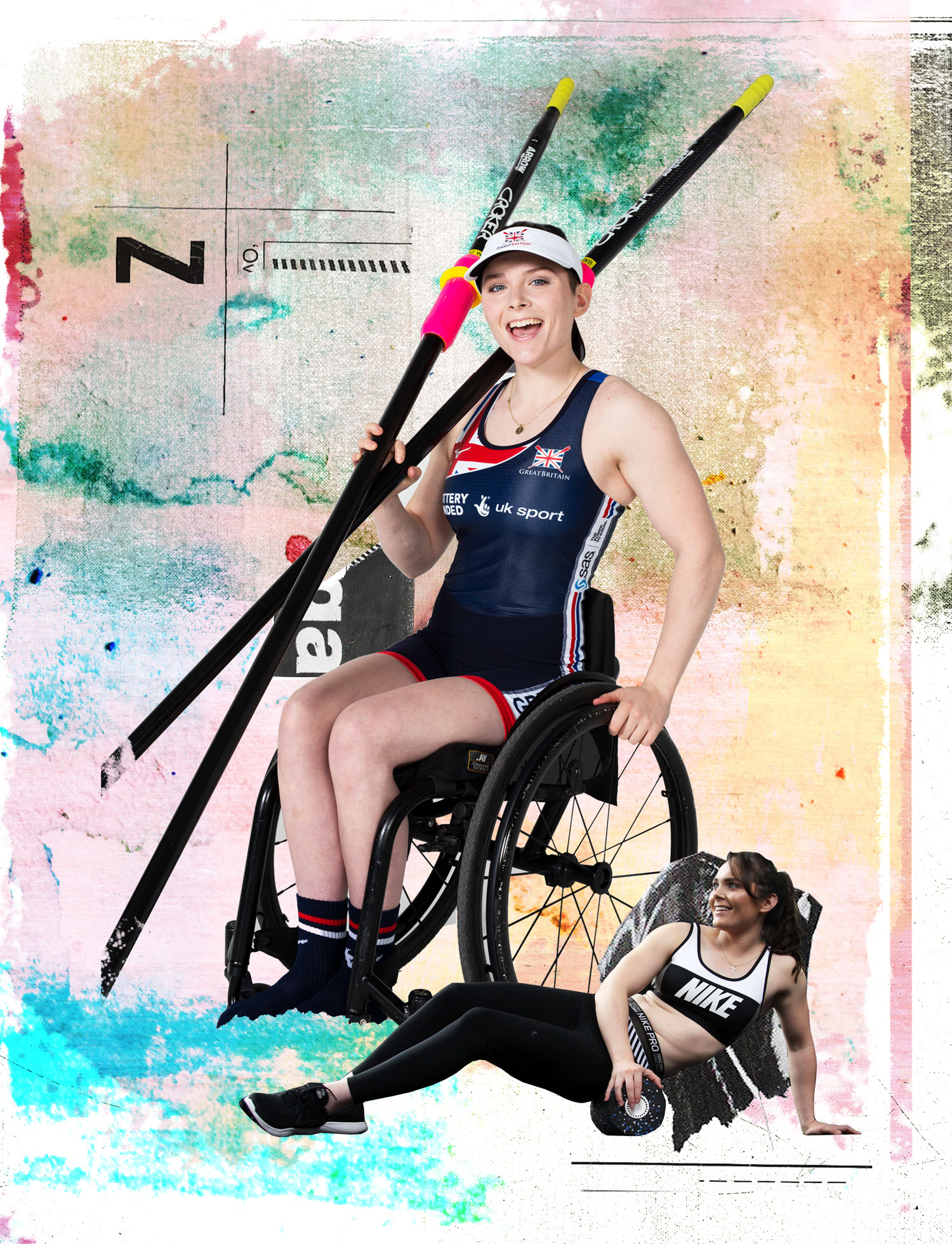
After that, although her long-term goal is to be a journalist, she feels she has more Games in her. “I’m not ready to take that final stroke.”After the Tokyo Games, she will take some time off, and is thrilled about her new role with Unlocked. Her aim with the programme is to use her platform and her voice to break down negative stereotypes around elite athletes on social media and destigmatize mental health issues in sport. Like everyone her age, Lauren had to learn how to navigate social media with no template and without the benefit of advice from her elders. “I grew up in the generation where you would be on Facebook before you were allowed, as well as Bebo and MSN. I didn’t really know that any random person could get in contact with you or give their opinion on you.” When strangers, including middle-aged men, started sending inappropriate messages, it opened her eyes to the dangers of social media.
There were other equally damaging sides to it. “I think the standards that social media set were detrimental to my growth and made me think about myself in the wrong way. The comments people left on my social media pages meant that I felt [my pictures] had to be filtered because being me wasn’t right. I used to filter the hell out of myself; I used to shoot one half of my face because I didn’t like the other side.”
Lauren’s athletic physique attracted further criticism. “There was this preconception that women shouldn’t lift weights, they shouldn’t be strong, they shouldn’t be muscular. People felt they had an invitation to tell me how they felt about me and how I should look as a female athlete. I suffer with anxiety and depression still to this day, because of what I experienced when I was a teenager, and a lot of that came from social media.” Lauren is hoping to use Unlocked to encourage national governing bodies to create structures to educate young athletes about social media and mental health.
“When I joined the rowing team I was 17. Not many people on the team had social media, or were using it in the way that I was on a daily basis. The coaches didn’t understand why I wanted to use it, and they also didn’t know what we were facing, with people commenting on us and saying things about us.” This is not, she insists, a criticism of rowing. “It’s just how sport was; the landscape at the time. Nowadays, it’s different. I want to make sure we have systems in place in our NGBs that mean there is support and guidance there for young athletes who are coming through, to protect them and tell them what to do if these things happen.”
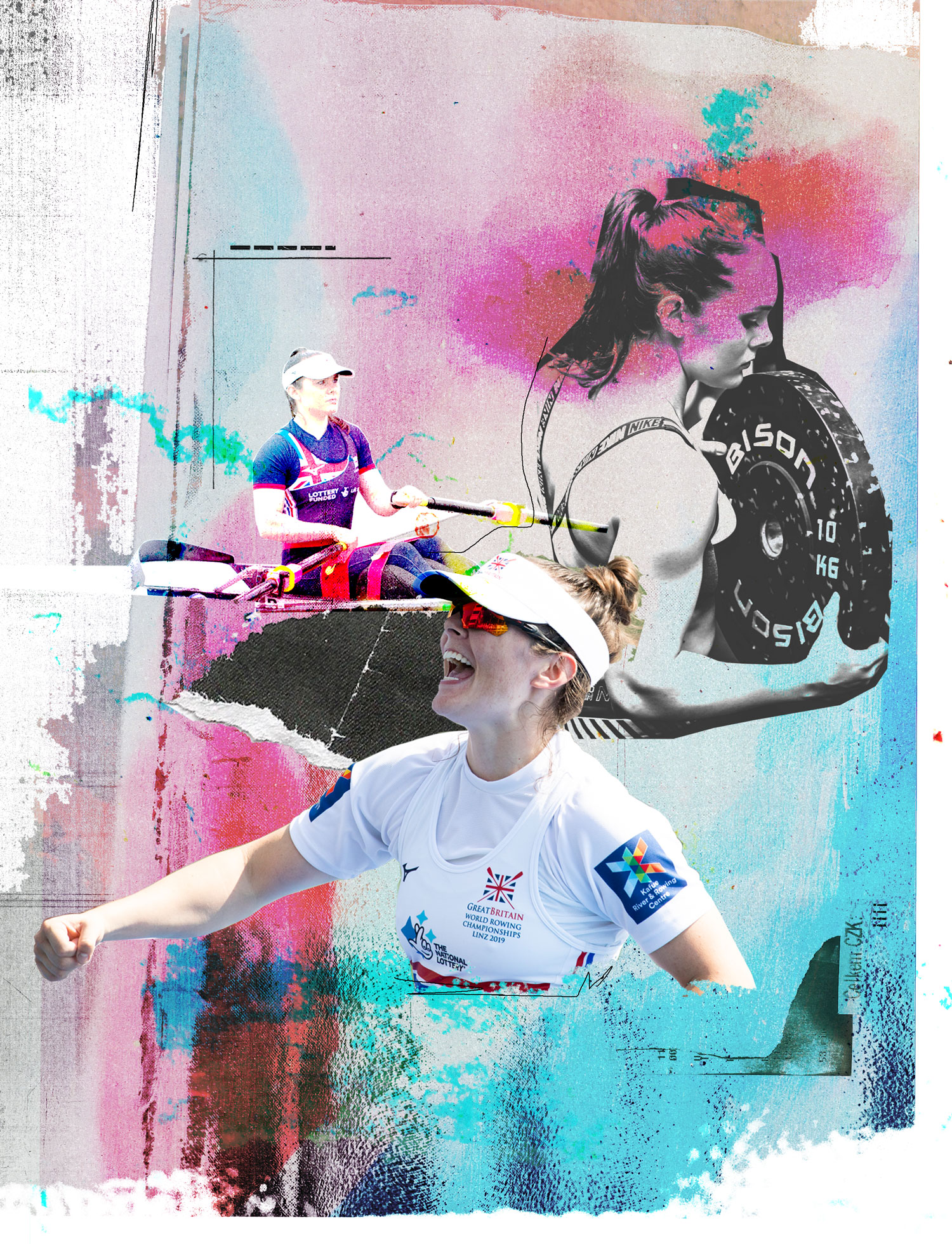
Through the Unlocked programme, Lauren is learning when and how to use her voice to speak up about the issues she is passionate about. “I didn’t come out as being gay until over a year ago now, and that was a massive thing for me, because I knew I would be criticised on social media. I’m very opinionated – I speak for different communities, whether it be the LGBTQ+ community or the para community. But being the voice of change, I also expose myself to criticism. And that’s been difficult over the years. As part of the Unlocked programme, I’m really learning how to use my voice in appropriate ways.” Lauren is delighted to be involved in such a powerful community of women. “We’re invested in changing the landscape of sport. In 10 years’ time, women’s sport is going to look very different because of these women. It’s incredibly exciting to be a part of that. For me, it’s all about paving the way for the next generation. I want them to have it easier than we did, and to flourish at an earlier age, which allows for better performance and, ultimately, a more authentic way of life.”
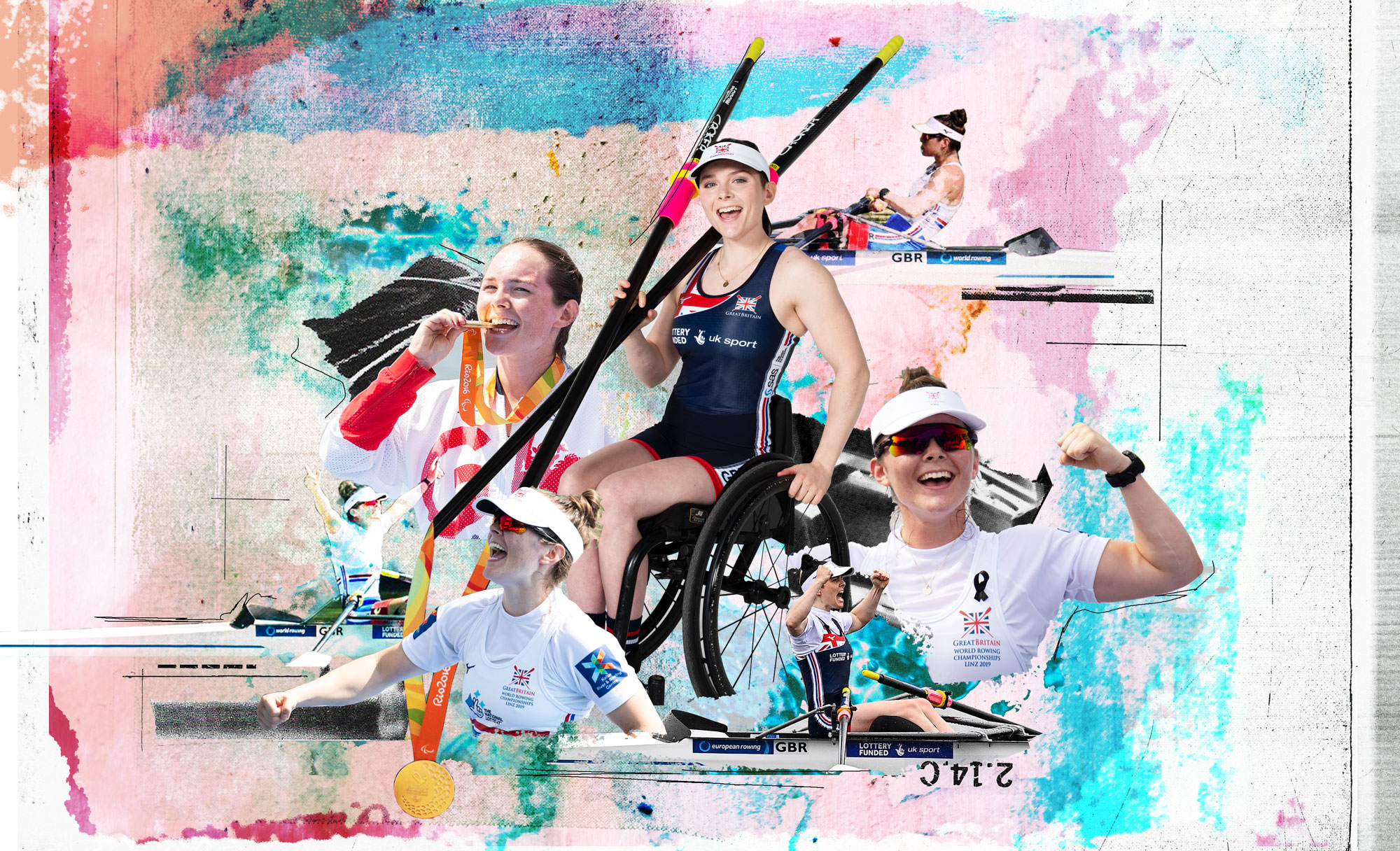
Photography thanks to Getty Images, Nick Middleton, Sarah Elwell, Izzy Cooper
